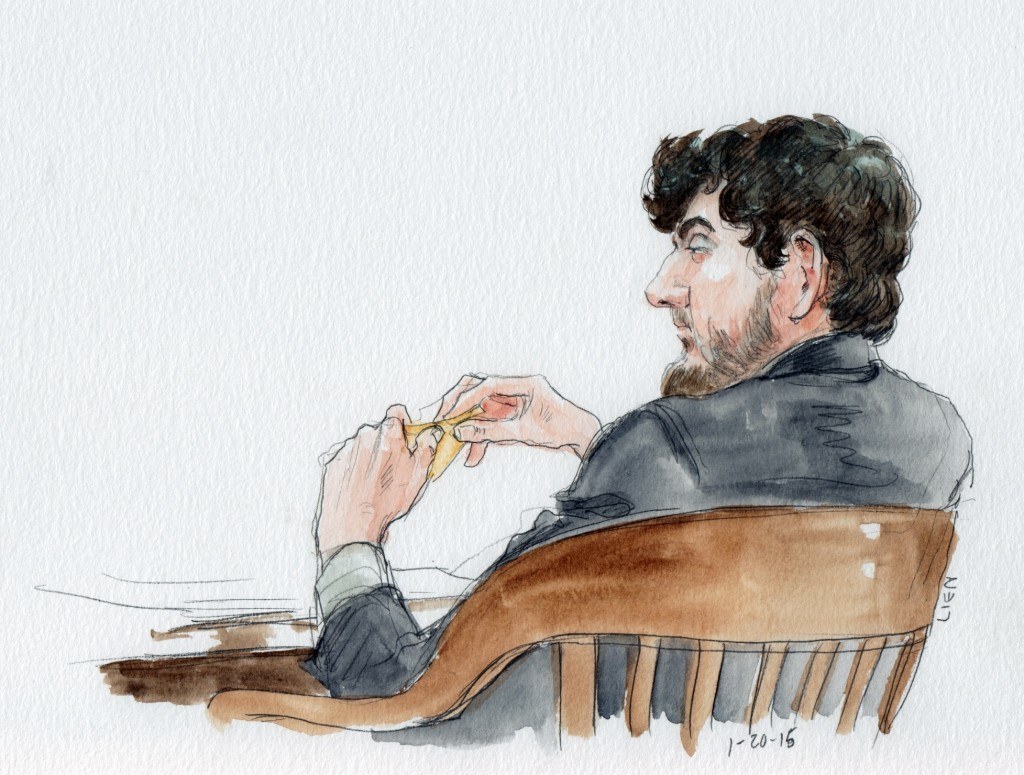
On Thursday, Feb. 12, the United States Court of Appeals agreed to consider the motion by alleged Boston Marathon bomber Dzhokhar Tsarnaev’s defense team to relocate the trial out of Boston.
The court has set a date of Thursday, Feb. 19 at 10 a.m., to hear oral arguments from both sides, who will have 20 minutes each to present their case.
News of the appeal comes as the winter weather has delayed the jury selection process, which the US District Court for the District of Massachusetts said last week could come to a close by tomorrow, “barring further weather delays” of course.
Presiding Judge George O’Toole has repeatedly denied motions by the defense to relocate the trial which is why the defense pursued a writ of mandamus – a means of circumventing a judge’s previous ruling in hopes of ordering him to make another.
For his part, Judge O’Toole contends Tsarnaev, who stands accused of charges that carry the weight of the death penalty, will receive just as fair and impartial a trial by a jury of his peers in Boston as he would anywhere else.
In fact, he said the defense’s motion for a mandamus carried even “less merit” than previous filings to relocate.
Northeastern School of Law Professor Daniel Medwed told BostInno previously that a mandamus is seldom granted which makes the agreement by the Court of Appeals to hear Tsarnaev’s case even more extraordinary.
A stay of jury selection, though, has been denied by the court to which Circuit Judge Juan R. Torruella dissents.
“Considering that this matter has been set for a hearing, it would appear to be contrary to First Circuit practice and the principles of due process to deny a stay before the parties have had the opportunity to be heard at that proceeding,” wrote Judge Torruella in his dissent. “Thus, the stay of jury selection should not have been denied at this time.”
The defense’s previous motions to relocate the trial were based on answers provided by potential jurors in their preliminary questionnaires, which they argued showed an overwhelming guilty bias.
The appeal will be open to the public though, according to the calendaring notice, “recordings of all proceedings in cases by parties before the court will be made available online unless the court orders otherwise or the court closes the proceedings to the public.”
